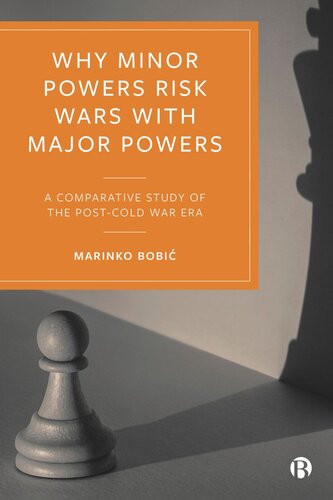

Most ebook files are in PDF format, so you can easily read them using various software such as Foxit Reader or directly on the Google Chrome browser.
Some ebook files are released by publishers in other formats such as .awz, .mobi, .epub, .fb2, etc. You may need to install specific software to read these formats on mobile/PC, such as Calibre.
Please read the tutorial at this link: https://ebookbell.com/faq
We offer FREE conversion to the popular formats you request; however, this may take some time. Therefore, right after payment, please email us, and we will try to provide the service as quickly as possible.
For some exceptional file formats or broken links (if any), please refrain from opening any disputes. Instead, email us first, and we will try to assist within a maximum of 6 hours.
EbookBell Team

4.1
60 reviewsThrough a range of case studies spanning the post-Cold War period in Iraq, Moldova and Serbia, this innovative book breaks new ground in its study of asymmetric conflicts where warring sides exhibit vast power differentials. It uses multiple theories to examine the different pathways that encourage minor powers to engage in both offensive and defensive wars that they are likely to lose, analysing domestic crisis as a key catalyst and considering ways to mitigate conditions that drive conflict. The author provides an important framework that can be applied to contemporary conflicts elsewhere.